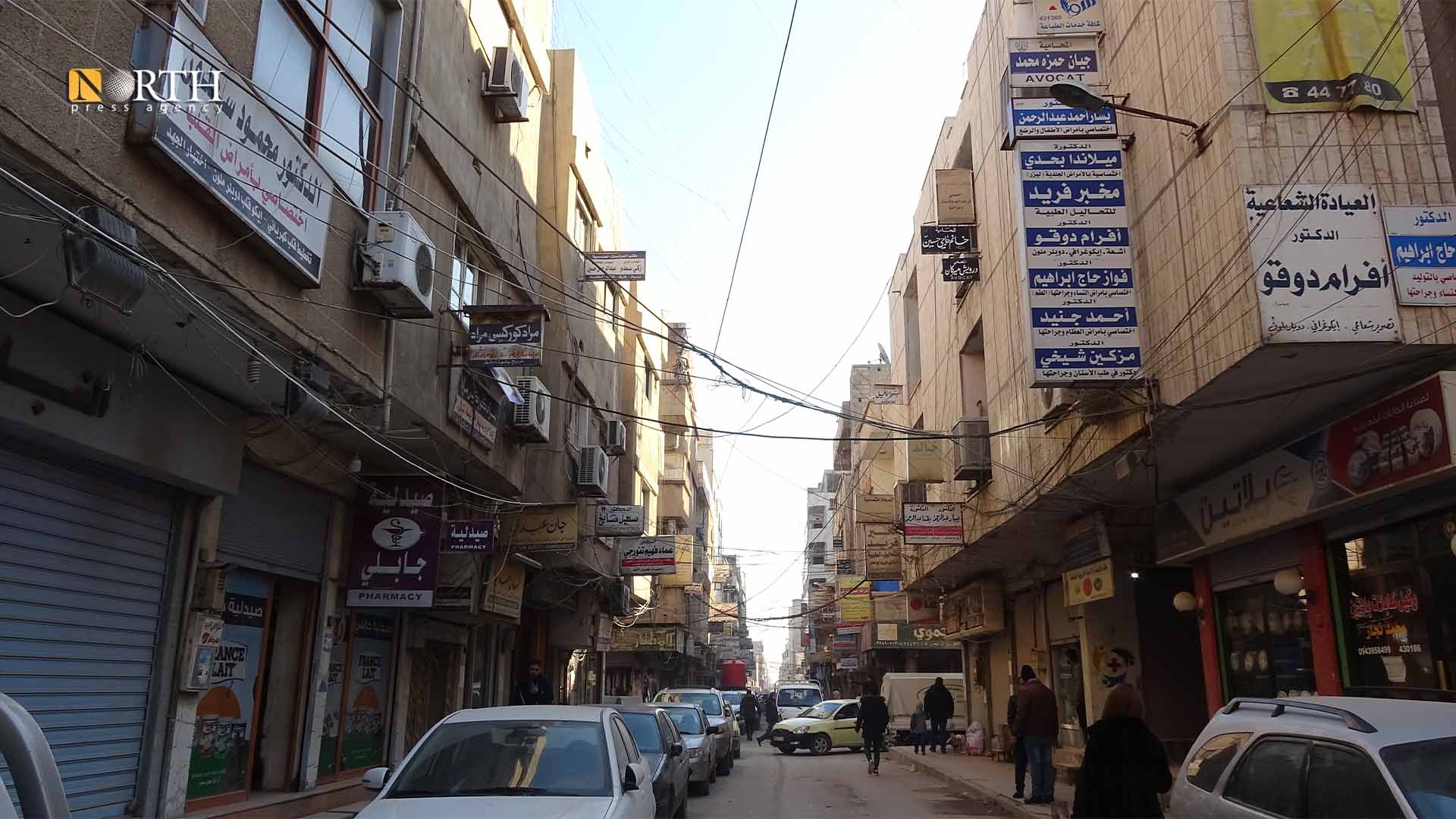QAMISHLI, Syria (North Press) – Raising prices of medicines and pharmaceutical products twice in 2021 in Syria has caused a problem to those citizens who have low income.
Ali al-Ahmad, 60, is an employee in an institution run by the Autonomous Administration of North and East Syria (AANES) in the city of Qamishli. He went to a pharmacy to ask for the price of a specific medicine he takes for asthma, and when he learnt that it costs 25,000 Syrian pounds (SYP), approximately $7, he decided to buy it later.
In mid-December, the Syrian government hiked the prices of medicines, for the second time in 2021, by 30%.
The problem of shortage of medicine appear every two or three months in Qamishli. More than 20 types of alternatives for antibiotics are sold in the drug stores, according to pharmacists.
Apart from the real price of the medicines, which are coming from Syrian government territories, cost of transportation, taxes and bribes paid by truck drivers and companies to government forces are added to the price of medicines, making them more expensive.
Al-Ahmad, who displaced two years ago from the city of Sere Kaniye (Ras al-Ain), said his salary is not enough to sustain his family for just 15 days.
He earns 300,000 SYP, equivalent to $90, per month.
On October 9, 2019, Turkey and their backed Syrian opposition factions invaded Sere Kaniye and Tel Abyad areas, displacing around 300,000 civilians.
Changing time of prescription
Al-Ahmed takes his medicines by partition; he no more takes them the same doses recommended by the doctor. He has only one pill every day of the three kinds prescribed by the doctor, and he takes one pill of another type of medicine three times a week instead of taking it on a daily basis.
Al-Ahmad and his family preferred to rent a house in the neighborhood of Hilaliya in Qamishli instead of living in a camp where IDPs suffer shortage of humanitarian aids.
Another civilian interviewed identified as Rabi’a Khezem, 70, said she was unable to find medicine for diabetes and cardio diseases. “My son managed to get the money to buy medicine for me but they are missing”.
Khezem added she does not trust alternatives the pharmacists recommend. “My relatives often send me drugs from foreign countries and I am forced to take them”.
The missing of medicines in the city is like a “disaster” for her.
Prices may re-increase
Tareq Hamandi, a pharmacist in Qamishli told North Press that the Syrian Ministry of Health raised the prices of medicine to avoid closure of pharmaceutical plants, whose manufacturers demanded a rise by 70%.
“Prices may increase again. This is not the first time nor will be the last,” he said.
Medicines for chronic diseases sometimes are missing because they are taken periodically. Plus the raw materials are also sometimes missing.
Syria’s pharmaceutical plants in Aleppo, Homs and Damascus governorates import raw materials from global plants abroad.
The Syrian plants have faced, for years, challenges to continue their work, most notably the depreciate of the Syrian currency.
Hozan Sheikhi, owner of Qamishli-based drug warehouses, said wages of transportation and taxes paid to the Fourth Armored Division of the government forces increase the already increased cost of medicine by 80%.
Prices vary from one pharmacy to another given there are about 40 drug warehouses located in Qamishli and all of them get medicines from different plants in the Syrian government-held areas.
Way of transportation and the cost also vary from time to time, he added.

